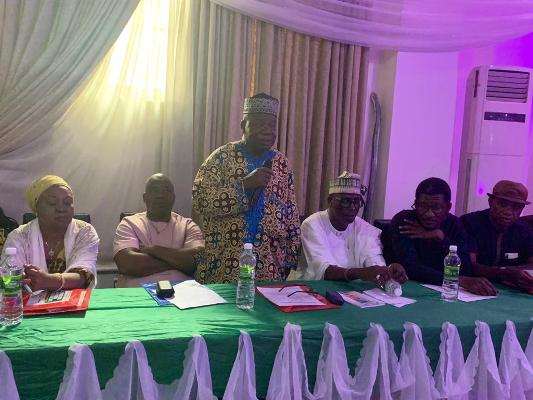Mr Adedayo Thomas, the Executive Director of National Film and Video Censors Board (NFVCB), on Tuesday, said the board was set to classify videos of Stand-up Comedy shows to ensure they were age-rated and regulated.

Thomas said this while delivering a speech at a conference on Classification and Censorship by NFVCB in Onitsha, Anambra State.
The one-day event, with the theme, “The Dynamics of Online Movie and Video Contents”, brought together filmmakers, distributors, investors and members of the various guilds in the Nigerian movie industry from the region.
According to Thomas, there are emerging trends and dynamics in film and video censorship, especially online, which necessitated the need to enlighten producers and distributors of video contents.
“The stand-up comedy live shows are subconsciously understood to be for adults, however, their e-rated content is mass produced on video disks and sold.
“They are thereafter watched in environments that are not age-controlled, including long-distance buses and viewing centres which urgently calls for regulation.
“Stand-up comedy traditionally is for the consumption of a group of people in a hall, and it depends on parents whether they are going to a comedy show with their children or not.
“However, when you now put it in DVD and other means for circulation, it needs to be regulated, because there are kids who want to watch it without understanding certain jokes and the motive behind them,“ he said.
Thomas said that NFVCB, in its efforts to safeguard children toward preserving morals and values, was also initiating strategies to effectively regulate music videos.
He noted that there was a lack of self -regulation by local artists as obtainable in advance countries, where radio and video versions of explicit songs were specially produced or filtered.
He, however, explained that the e move was not a witch hunt against artists and their works but to ensure that “the right thing is done to safeguard our children.”
“What is for an adult should not be seen at 15, and what is for 12 should not be seen at 7, and this is what we are advocating.
“We are Africans and we will remain a people with strong moral values which need to be sustained and transferred to the younger generation, no matter the degree of westernization.
“We don’t have self-regulation here, so you hear ‘F’ words and hate speeches, which call for stringent regulation,” he said.
The Executive Director said that the board was holding stakeholders education campaign across Nigeria, especially in film and video production hubs.
He said: “Policies and actions are sometimes misunderstood if people concerned are not engaged and enlightened.
“One of the reasons why we are here is to engage the stakeholders, and make them understand what we are doing and tell them what is expected of them for us to have a better society.”
Mr Hubert Udeh, South-East Zonal Coordinator of the NFVCB and host of the conference, said the event was part of efforts to engage stakeholders in the region.
“You cannot talk about Nollywood without mentioning Onitsha, because it is the root of the industry where you have foremost actors, directors, producers and marketers.
“Because of the commercial nature of Onitsha, many people see everything as a business opportunity, without realizing they are doing the wrong thing.
“This forum will enable the practitioners and the consumers to understand the essence of classification and censorship,” he said.
NAN reports that the NFVCB is a Federal Government body that regulates the films and video industry in Nigeria.
The board is empowered by law to classify all films and videos, whether imported or produced locally.
It is also the duty of the board to register all films and videos outlet across the country, as well as keep a register of such registered outlets, among other functions.
(NAN)

